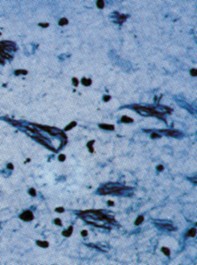Peer Reviewed
Feature Article Neurology
Alzheimer’s disease: practical advice for management in general practice
Abstract
New drug therapies have changed the way in which Alzheimer’s disease is treated, but patients still require regular symptom review, guidance on practical and legal issues, and referral to community support services. GPs play a key role in each aspect of successful management.
Key Points
- Cholinesterase inhibitors are indicated for symptomatic treatment of cognition and behaviour in mild to moderate dementia of Alzheimer’s type.
- To date, no drugs have been proven to halt or slow underlying disease progression in Alzheimer’s disease.
- In comparison to tacrine, donepezil is devoid of hepatotoxicity, has improved gastrointestinal tolerance, and simplified compliance, prescribing and monitoring.
- Depression can coexist with Alzheimer’s disease and should be treated appropriately.
- Regular assessment of the presence and impact of behavioural and psychological symptoms associated with Alzheimer’s disease is important in management.
- Pharmacological treatment for behavioural symptoms should be reserved for drug-responsive symptoms that are causing at least moderate distress to the patient or caregivers.
- Counselling should include early attention to practical and legal issues and, in particular, discussion of the impact of Alzheimer’s disease on driving safety.
- The Alzheimer’s Association provides a range of support and educational services for patients in every State and Territory.
Purchase the PDF version of this article
Already a subscriber? Login here.

